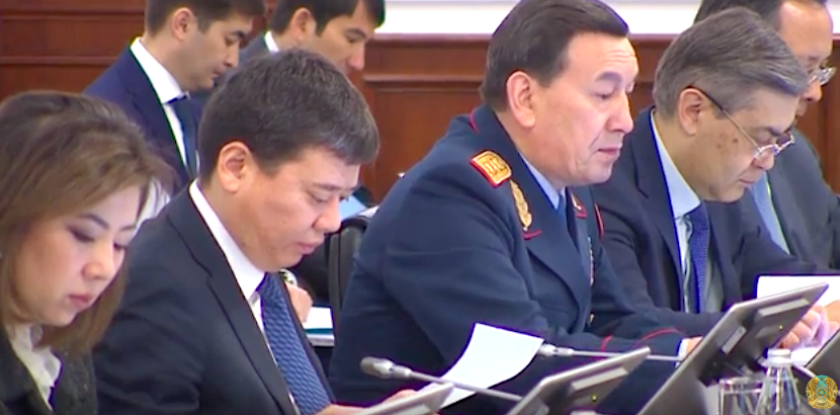The decision made by the Italian Appellate Court in favor of Moldovan businessmen Anatol and Gabriel Statis as well as the subsequent statement made by the Ministry of Justice of the Republic of Kazakhstan did not go unnoticed by the Kazakh press and social media. However, no one has commented on the three circumstances that we believe are very important.
Note that, according to the Italian Appellate Court’s decision of March 1, 2019, the objections made by the Kazakh litigators were dismissed and the verdict reached by the Arbitration Institute of the Stockholm Chamber of Commerce on December 19, 2013, is now enforceable on the territory of this country.
Following this development, Minister of Justice of the Republic of Kazakhstan Marat Beketayev has made an extended statement.
Here it is (text in bold by kz.expert).
“In Italy, there are no assets belonging to the Republic of Kazakhstan (RK) that can be subject to court-enforced collection. Therefore, the risks for the RK are minimal”.
The Italian court did not take into consideration the fact that the Swedish court did not reach a verdict on the fact of fraud. The Italian court also did not review the substantial body of evidence presented by the RK whereas in contrast Stati had never provided any rebutting evidence. After the decision was made by the Swedish court, new evidence had surfaced that not only confirmed the accusations of fraud but also elicited additional evidence…”.
“In fact, in June 2017, the UK court, upon assessing the evidence presented by the RK, reached a rather convincing conclusion that the Statis had obtained the arbitration verdict through fraud. Then, the UK court had scheduled the hearings providing the Statis with the opportunity to present rebutting evidence. However, Stati elected not to hold the hearings. He was permitted to do so on the condition that he will never return to the UK courts seeking recognition for the arbitration decision and that he is obligated to reimburse the expenses. So far, the UK court is the only court that has studied the evidence and reached a rather convincing conclusion on the existence of fraud. No other court, including the Italian court, has assessed and heard the evidence”.
“Further investigations are continuing in the other jurisdictions where the Statis are offered to present the evidence to rebut the substantial and progressively growing evidence that fraud had been committed”.
It looks like Marat Beketayev and his team remember very well the shock and then the scandal that followed the arrest of US$ 22 bln belonging to the National Fund of the Republic of Kazakhstan and the amount of efforts, time and money they had to invest in order to reduce the size of the seized assets down to the sum determined by the Stockholm Arbitration Court’s verdict. This can be confirmed, among other things, by the fact that Beketayev’s statement begins with the assertion that, in Italy, there are no noteworthy Kazakh assets and, therefore, the risks for Kazakhstan are minimal.
Moving on to the second point. According to the Minister of Justice of the Republic of Kazakhstan, the UK court is the only court that has taken the side of Kazakhstan in its collision with the foreign investor. According to the Ministry, the other courts including the Italian court have not yet assessed and heard the body of the evidence provided by the Kazakh litigators regarding the fraud allegedly committed by Anatol and Gabriel Statis.
Now it is a good time to ask ourselves – why is that so? Is it not because the Kazakh authorities, after the longstanding and extra-tense legal war against oppositional politician and businessman Mukhtar Ablyazov in the UK, are now navigating well in this country, have established the ties with the best (and, therefore, expensive) legal firms and are using the accumulated experience to help them in another case?
The answer to this question is of a vital importance because, in the legal war against Mukhtar Ablyazov, the Kazakh officials have eventually been able to turn the tables thanks to the gigantic expenses (more than US$ 500 mln) paid for employing foreign lawyers, investigators and the press.
Since, in terms of its internal political significance, Statis’ case is about three times less important than Ablyazov’s case, Akorda is unlikely to approve overly heavy expenses and, at the same time, is no longer able to take hostages. Therefore, in the best-case scenario, the UK court will remain in splendid solitude, in the worst-case scenario, the UK judges will no longer trust those who represent Kazakhstan and its interests.
And, finally, the third point. Even though, so far, the Ministry of Justice and its head Marat Beketayev have been able to ward off the Stati brothers, they have no power to prevent the negative information that Kazakhstan can and does rob foreign investors from being distributed around the globe. Which is especially critical at the time when Akorda is a desperate need of foreign investors. In fact, this need is so extreme that Akorda has placed the responsibility for attracting foreign investors on the Ministry of Foreign Affairs which, in itself, seems nonsensical in the context of the world’s practice.





